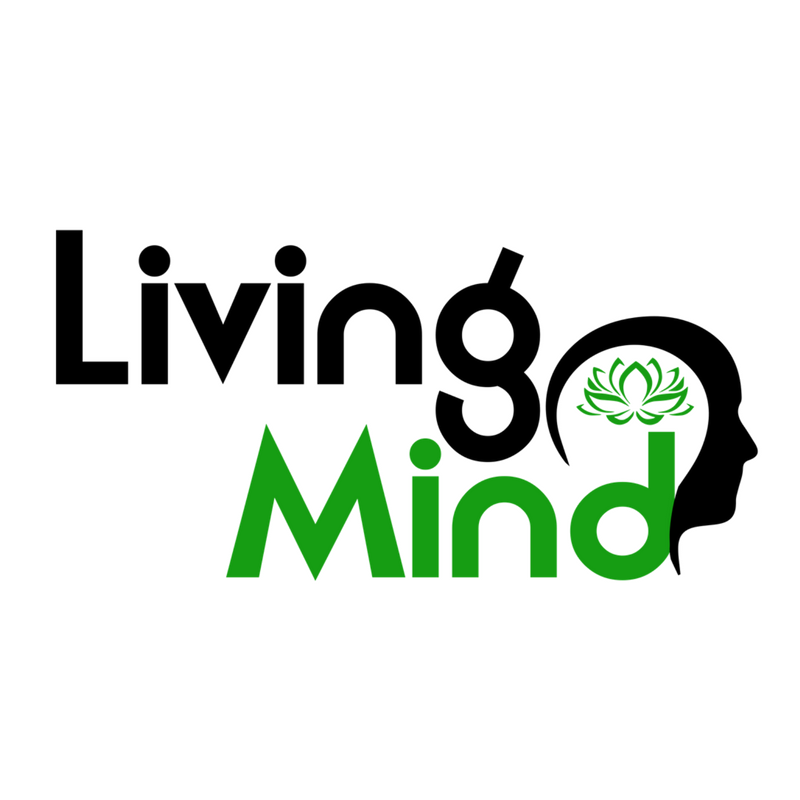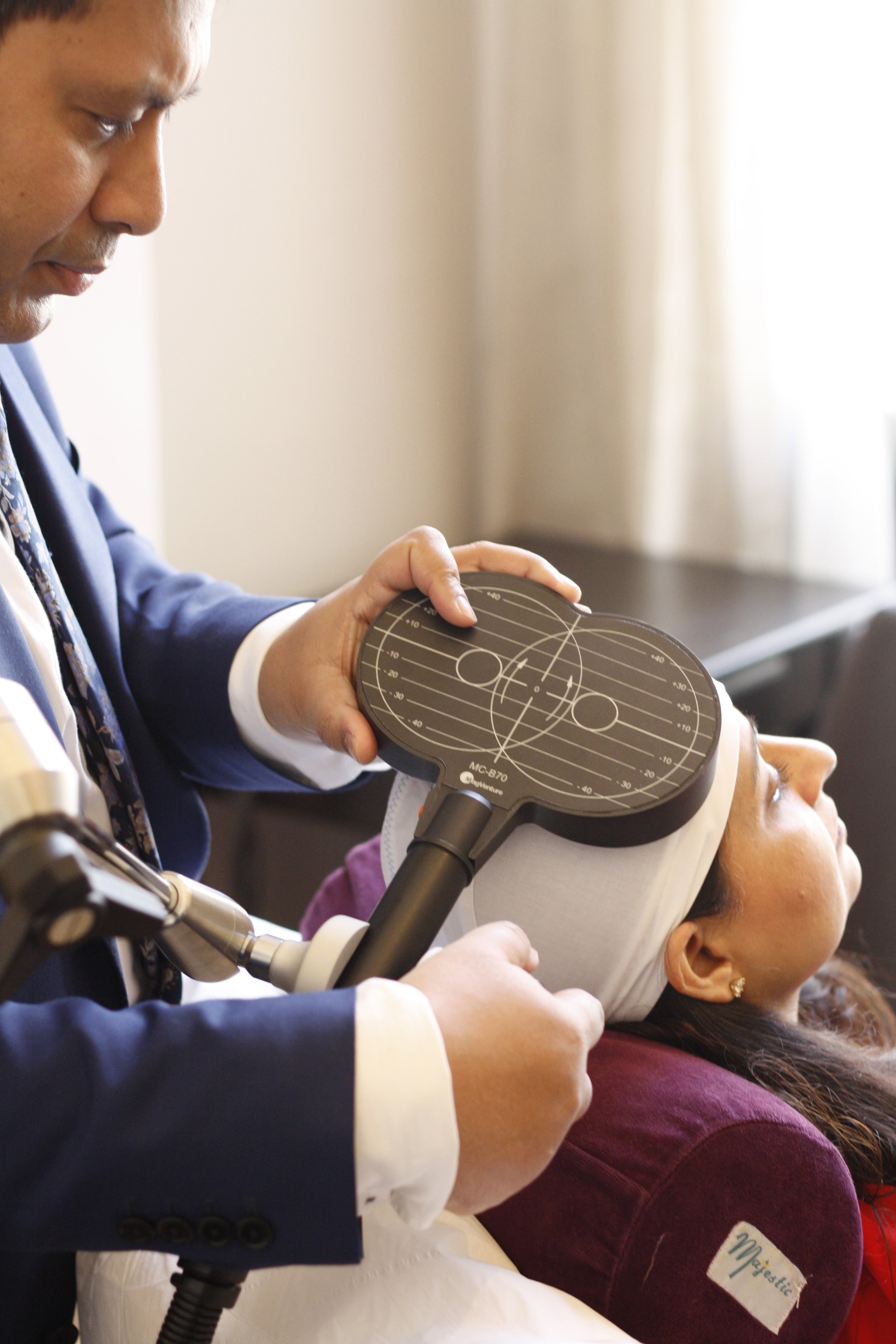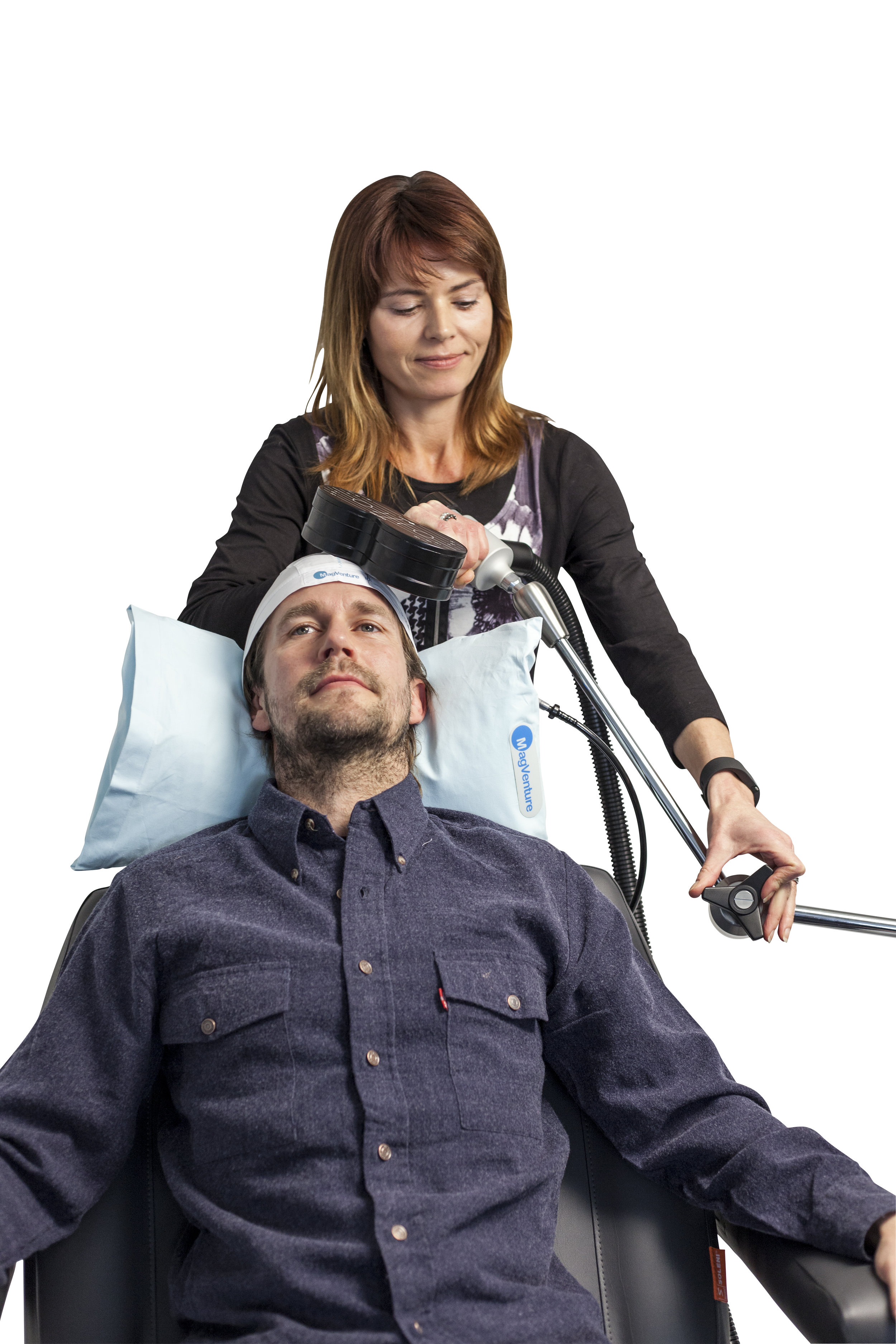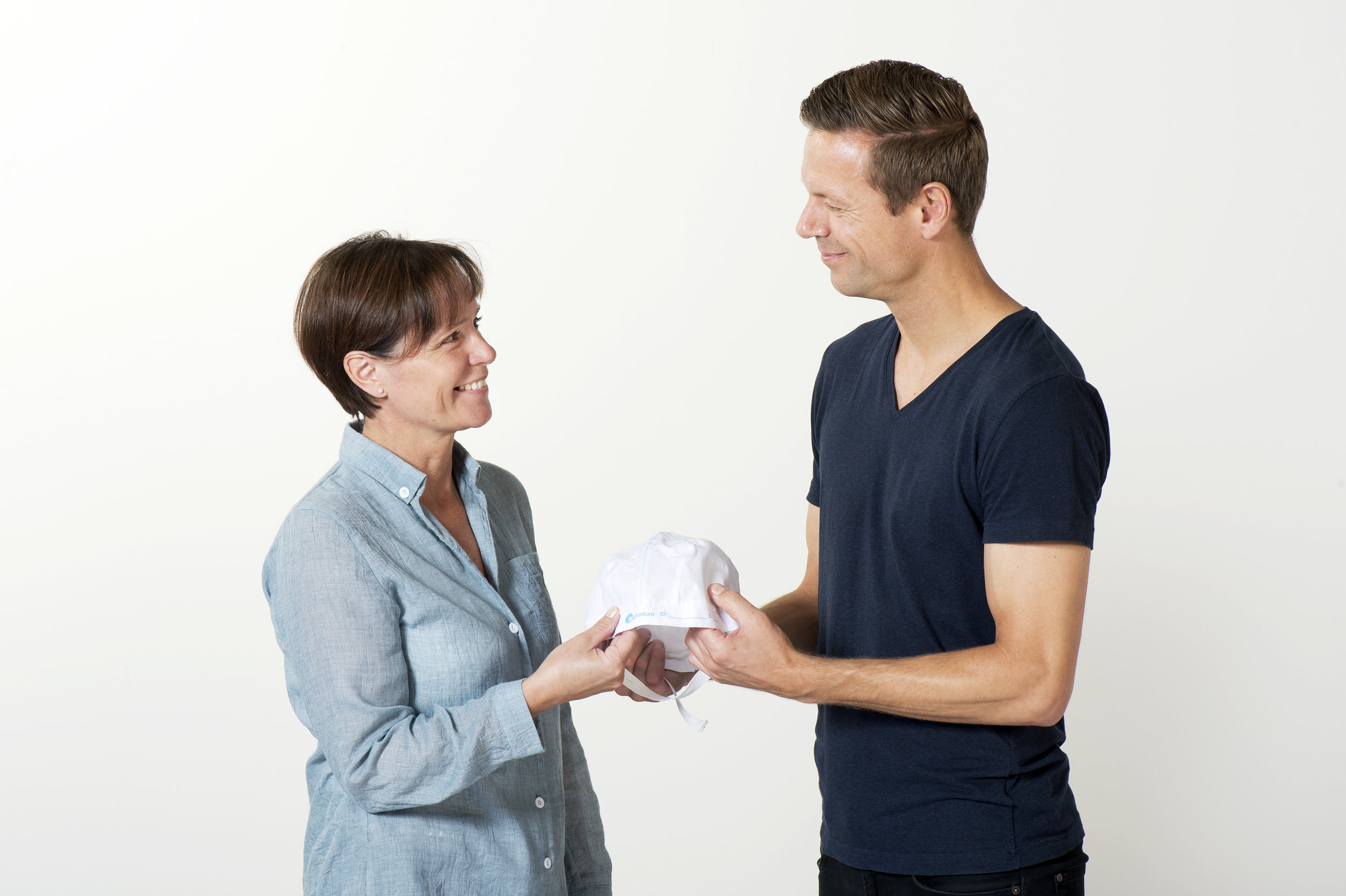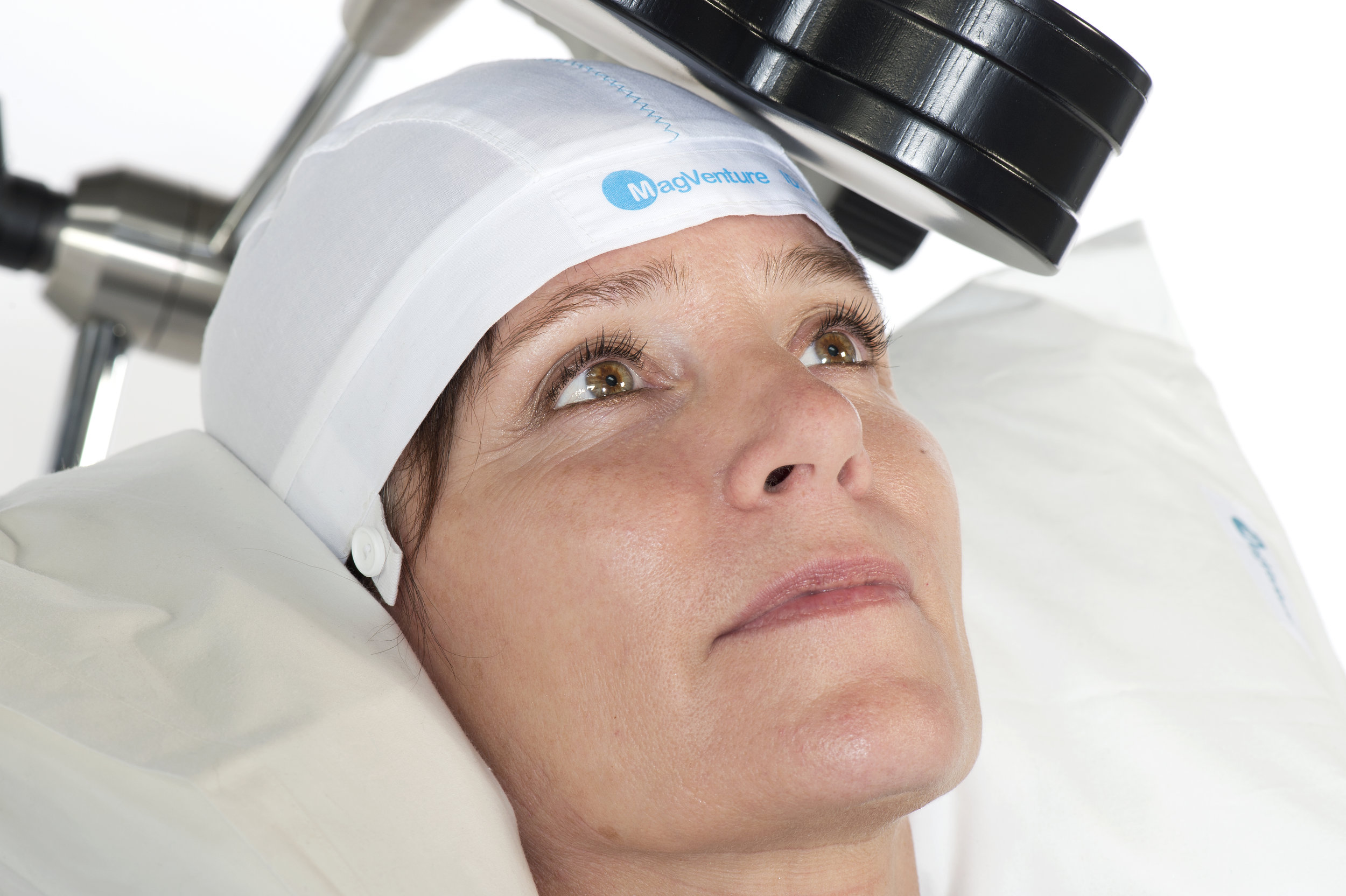What Is rTMS Therapy?
TMS Therapy is a non-invasive treatment for Depression, Anxiety and other disorders
Repetitive Transcranial Magnetic Stimulation (rTMS) is a form of deep brain stimulation approved by NICE (National Institute for Health Care and Excellence) in 2015 as a particularly powerful method of treatment for depression. It has also been successful in the treatment of a number of other disorders such as chronic pain, migraine, tinnitus, eating disorders, and addiction. rTMS Therapy is entirely non-invasive and has few side effects. It doesn’t involve any anaesthesia, surgery or oral medication.
The session involves placing a treatment coil on the skull next to the area of the brain most associated with controlling the medical or psychiatric condition being treated. A magnetic pulse will be passed through your skull into your brain which creates a small electric current and in turn stimulates neurons to become more active through a process called electromagnetic induction. The treatment is administered by Consultant Psychiatrist Dr. Sarkhel who specialises in Mental Health and has had over 25 years experience in the field. To find out more information please refer to our frequently asked questions.
What does it treat?
rTMS has also seen to be effective in treating a number of other conditions including:
Anxiety Disorder
Post-Traumatic Stress Disorder
Bipolar
What does it involve?
rTMS involves placing a treatment coil on the skull next to the area of the brain most associated with controlling the medical or psychiatric condition being treated.
Unlike electroconvulsive therapy (ECT), rTMS is painless and does not affect the whole brain. rTMS works by inducing small electrical currents into the brain using pulsing magnetic fields.
By controlling these currents we can increase or decrease activity in the parts of the brain associated with the condition being treated. The treatment usually takes 2-6 weeks to complete with most recipients feeling a noticeable effect after 3-4 weeks.
If you’re interested in receiving treatment but you’re not sure if it is the right option for you, schedule a no obligation call with Dr. Sarkhel to determine your suitability.
Highly Qualified Staff
Dr. Sarkhel who administers the treatment has over 25 years experience within the mental health sector and has specialist training in administering rTMS treatment.
Minimal Side Effects
The side effects from rTMS are incredibly small compared to those from traditional pharmaceutical anti-depressant medications. The most common side effect reported is a headache, but not everybody will experience these.
Non-Invasive
rTMS treatment is incredibly comfortable and simple, there is no need for anaesthetic during this treatment. You won’t even feel any pain and can even read a book or magazine whilst being given treatment.
Drug-Free
There can be many reasons why somebody may prefer a drug free option. Those who cannot tolerate the side effects of traditional medications tend to find this treatment particularly helpful.
What Our Clients Say
“rTMS has been a life changing experience for me. I’ve been suffering from recurring major depression for more than 20 years and before the treatment I was on 3 different antidepressants. After 2 weeks in the treatment, I was able to reduce it to only 1! In fact, I’m writing this sitting in the rTMS chair!”
We are unique in the sense that we administer a range of bespoke complementary and holistic therapies alongside rTMS treatment in an approach we call ‘Integrated rTMS’. At Living Mind we realise the benefits of integrated healthcare. We offer mindfulness and talking therapy alongside traditional rTMS treatment as we believe an integrated approach will optimise your results and improve your outcome.
rTMS as a Treatment for Depression
rTMS is seen in the medical world as a groundbreaking drug-free treatment for depression. Many sufferers of depression turn to rTMS if they want to take a non-pharmaceutical approach to treating depression and also want to avoid the notable side effects of taking antidepressants. It is a useful treatment for those who have failed to respond to antidepressant medications.
On being approved as an effective treatment for depression in 2015, NICE noted:
'The Committee noted that commentary from patients was positive and described significant benefits to their quality of life, including the advantages, for some patients, of being able to stop the use of oral antidepressant medications.'
You can read the full NICE report here
Living Mind have recently published research on the Effectiveness of Multiple rTMS Treatments Per Day for Depressive Disorder At Living Mind, UK as part of the clinical rTMS society annual conference. The abstract will also be published in Brain Stimulation Journal in USA.
‘All patients showed significant improvements in their symptoms of Depression. This was evident through statistically significant mean difference between pre rTMS and post rTMS HAM-D scores.’
You can read the full report here.
